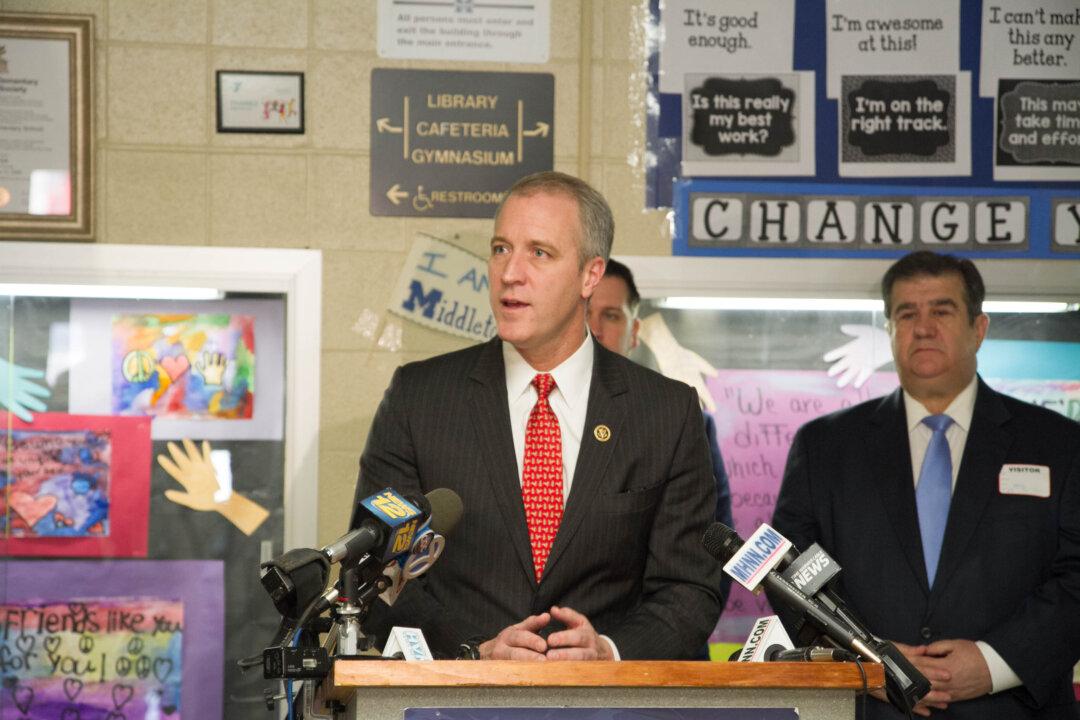MIDDLETOWN—Rep. Sean Patrick Maloney announced new legislation that would reclassify swatting as an act of domestic terrorism and create an FBI task force to combat it.
Speaking at a press conference at Maple Hill Elementary School on Mar. 4, he said this would make available the resources needed to combat a national problem that has hit the Middletown school district the worst in the state, if not the nation.
The district has been receiving the threats from restricted calling party numbers that hide the number and location of the caller.





